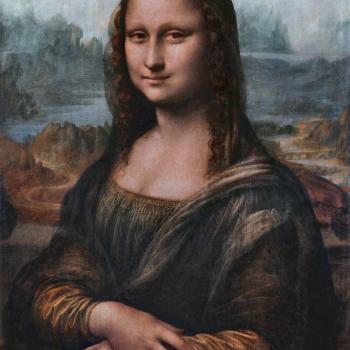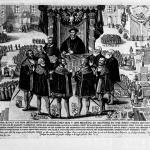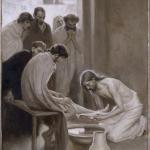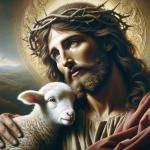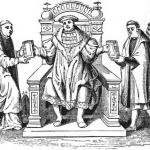There has been considerable talk about the Harry Potter book series of late because J. K. Rowling recently revealed that Dumbledore was gay. Some people have taken this as proof that the series is unfit for Christian youth. Others have taken this as proof of Rowling’s sympathy towards diversity and applaud her efforts to provide a gay role model for today’s youth. Whether or not these interpretations are justified (since there are other interpretations one could make of this fact), at least they indicate an understanding of the authority an author has over their work.
What an author says about their work must be recognized as true. The author, more than anyone else, knows the intricate details of their characters. They might not, to be sure, know all the details that can be had if one were to analyze the story, but they would be the one who has the authority to determine if any given interpretation of their work is valid or not. Therefore, it has been rather surprising to see many of Rowling’s fans to deny her that right with her own books. They want to suggest she cannot say anything about her books, the stories involved in them, and the characters which are employed in those stories, which are not already clearly stated in those books. If she says something, it is just her opinion and it is of equal worth to the opinion of one of her fans who says they do not believe her. Such a sola scriptura methodology in dealing with the text is inexcusable at the best of times. When one finds Catholics arguing in this manner, it is as perplexing as it is indefensible. It is the kind of denial that one could expect from Protestants who reject any notion of a Magisterium or teaching authority behind the Christian faith, and not from Catholics who should know better. Moreover, it suggests that there is no such thing as a true interpretation; rather, there is only a complex matrix of opinions, none of which are necessarily correct. Such relativism can only come from a nihilistic hermeneutic, because it is only when one believes there is no truth can one suggest everything is mere opinion alone.
A good writer knows far more about the story and characters than they write down. The reason why they can put together a reasonably realistic and developed story is because they know details they do not tell the audience. The trick is to tell just enough to make the story believable. “It is important to learn to write just enough and no more; many an apple has been spoiled by being cooked too much or too little, so to speak,” August Derleth, On Writing (Boston: The Writers Inc., 1946), 138. The author must be the master of their story, and this includes knowing enough about their characters and the events surrounding their tale to make the storytelling self-consistent. If they do not reveal all the information in their text (and it is quite impossible to do so), they should be able to explain what happens. The only way to do this properly, without everything being arbitrary and falling apart, is to map out all that has happened and to know all the details, especially those which are not written down. Then they can easily justify their story if and when the time comes. If they have properly done their work, the fact that they know more than they reveal should more than justify the authority an author has over their text. Thus, what makes J.R.R. Tolkien’s works so believable comes from the amount of work and effort he put into developing the intricate details of Middle Earth, most of which did not make its way into his writings. They influence the outcome of the events within the stories, and if one would write an interpretation which contradicted the greater information Tolkien had of his own writings, Tolkien had more than a right to respond and correct such an interpreter, and as anyone who has read his letters knows, he more than once exercised that right.
This is not to say an especially acute reader might not gather a greater meaning to a text than the author. But if they are to do so, they must do so, as long as the author is alive, in relation to what the author says and judges about that interpretation. If the author says to a reviewer or critic that they have seen something in the work which they did not expect but nonetheless follows through with what has been written, the author than is exercising their authority over their work. Tolkien, sometimes, even if rarely, did indicate to his friends that they had indeed done just that (and when they did so while he was in the process of writing his stories, he would often use what he was told to enhance his own work and develop the theme or themes his friends noticed in the text). However, it is quite possible, if not more likely, that a critic misses out on some of the ideas an author puts in their book. If a critic writes something which is erroneous, the author has a right to tell them they are wrong. Moreover, if an author later reveals information about their work, one cannot tell them, “No, I do not agree: that is not found in your work.” Not only would such a person be showing hubris in asserting an authority over a work which is not their own, they might also be showing their ignorance over the text itself. C.S. Lewis once noted such a careful reading of his own texts was often lacking by those who reviewed his works. “The first thing I have learned from my reviewers is, not the necessity (we would all grant that in principle) but the extreme rarity of conscientiousness in the preliminary work which all criticism should presuppose. I mean, of course, a careful reading of what one criticises. This may seem too obvious to dwell on. I put it first precisely because it is so obvious and also because I hope it will illustrate my thesis that in certain ways (not of course in others) the author is not the worst, but the best, judge of his critics. Ignorant as he may be of his book’s value, he is at least an expert on its content,” C.S. Lewis, “On Criticism” pages 127 – 141 in C.S. Lewis: On Stories and Other Essays on Literature. ed. Walter Hooper (New York: Harcourt Brace Jovanovich Publishes, 1982), 130. Indeed, “A great many people start by thinking they know what you will say, and honestly believe they have read what they expected to read. But for whatever reason, it is certainly the case that if you are often reviewed, you will find yourself repeatedly blamed and praised for saying what you never said and for not saying what you have said,” ibid., 130-131.
If we turn to back Harry Potter, this seems to be the case with regards to Dumbledore. A careful reader of The Deathly Hallows will note in Dumbledore’s backstory his unseemly and unhealthy connection to Grindelwald. We are told some of that relationship; it is very clear Dumbledore and Grindelwald have an effect on one another. Grindelwald puts Dumbledore’s motto, “For the Greater Good” on his banner. Dumbledore’s attraction for power and pursuit of the hallows comes from his relationship with Grindelwald. While a reader might assume it was merely a close friendship, one must understand the story we are told is incomplete. Rowling’s revelation, in relation to what was actually written, makes what was obscure very clear, and fits precisely with the events in the story. She did not need to tell those details to make her book effective: which is why, following the tradition authors follows, she did not reveal this information in the book. But this does not mean she just made up what she said on the spot and that this extra information should be ignored. Because what was said in The Deathly Hallows not only make more sense after this revelation, but actually provide a rather sophisticated way for us to understand the good and the bad within Dumbledore, we must not only accept Rowling’s revelation but see it was actually thought out before she wrote the seventh book in the Harry Potter series. And any future interpretation of the Harry Potter series must now take this revelation into account. The interpreter has no authority over and above Rowling in dictating what has happened within the story she has created.






